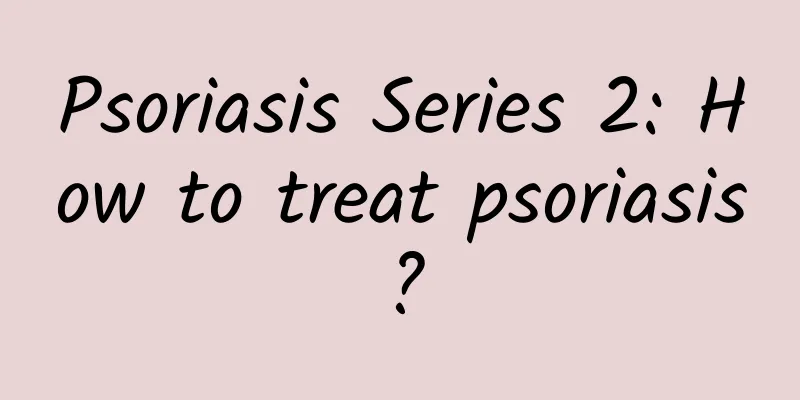Is there any connection between thyroid and pregnancy?

|
Some pregnant women are diagnosed with thyroid diseases during pregnancy. Is there any relationship between thyroid and pregnancy? The hormone levels in a woman's body will change during pregnancy, which may cause thyroid diseases, so women must pay special attention to whether there is any discomfort in the thyroid area during pregnancy. Let's take a look at the changes in thyroid hormone production and metabolism during pregnancy. Changes in hormones and maternal metabolism during normal pregnancy lead to changes in maternal thyroid hormone production and metabolism, mainly including four aspects: increased thyroid binding globulin (TBG), stimulation of the thyroid gland by human chorionic gonadotropin (hCG), increased activity of placental type III deiodinase, and increased renal clearance of iodine. 1. Increased TBG: This is the most obvious change, with serum TBG reaching 2 to 3 times the non-pregnancy baseline value. This change begins between 6 and 10 weeks of pregnancy and continues throughout the pregnancy. This is because estrogen causes a slowdown in the metabolic clearance of TBG from the liver. The concentrations of serum TT4 and TT3 increased, while the concentrations of serum FT4 and FT3 remained within the normal range on average. Due to this change in TBG, serum TSH levels showed a slightly increasing trend throughout pregnancy. However, in areas with severe iodine deficiency, the concentrations of serum FT4 and FT3 may be lower than normal, while the concentration of TSH may be higher than normal. 2. hCG: The concentration of serum hCG gradually increases during pregnancy and reaches its peak at 3 months of pregnancy. Therefore, this change mainly affects the 1st to 3rd month of pregnancy (T1 period). HCG and TSH have the same α subunit, similar β subunit and receptor subunit, so they have a stimulating effect on the TSH receptors of thyroid cells. The level of serum hCG is linearly correlated with the level of serum FT4. Due to this stimulation, suppression of the pituitary-thyroid axis can occur between the 8th and 14th weeks of gestation. The level of serum hCG showed a mirror image trend with the level of serum TSH. For every 10,000 IU/L increase in serum hCG concentration, serum T4 concentration increased by 0.6 pmol/L, while serum TSH concentration decreased by 0.1 Mu/l. The experimental results show that approximately 20% of normal pregnant women have serum TSH levels below normal during the T1 phase. Clinical hyperthyroidism can only occur when serum hCG reaches a level of 50,000 to 70,000 IU/L and can be maintained for a considerable period of time. The serum hCG peak in most pregnant women only lasts for a few days, so it will not cause hyperthyroidism. Only 1.5% of pregnant women develop transient hyperthyroidism due to the stimulation of the thyroid gland by hCG. 3. Deiodinase: There are three types of thyroid hormone deiodinase in the human body. Type I 5F deiodinase (MID-I) is mainly present in the liver and kidneys and does not change during pregnancy. The placenta contains type II 5F deiodinase (MID-Ⅱ) and type III 3,5-deiodinase (MID-Ⅲ). MID-Ⅱ deiodinates T4 in the local placenta to form T3. The unique effect of placental MID-III during pregnancy results in the fetus having a thyroid hormone composition that is lower than T3 and higher than rT3 [1]. 4. Iodine metabolism: The clearance rate of iodine increases during pregnancy, and the fetus also needs iodine to synthesize its own thyroid hormones, so the body's need for iodine increases. The WHO recommends that the average adult consume 150 μg of iodine per day, which should be increased to 200 μg per day for pregnant women. Pregnant women in iodine-deficient areas may experience reduced thyroid hormone synthesis, decreased serum T4 concentration, increased TSH levels, and thyroid enlargement due to insufficient iodine intake. In addition, the mother's iodide ions can cross the placenta and supply the fetus with thyroid hormones. However, large amounts of iodine ions can inhibit the fetal thyroid function in synthesizing hormones. |
<<: Best time for 3D B-ultrasound
>>: The harm of thyroid nodules to pregnant women
Recommend
Do girls have prostate glands?
The prostate is a physiological tissue that exist...
315 Exposure: Burger King uses expired ingredients, sea cucumber soaked in dichlorvos. Would you still eat it?
Because of the epidemic, this year's CCTV 315...
I drank Laozao for three months during breastfeeding.
After giving birth, women are in a breastfeeding ...
DHA supplementation during lactation
During breastfeeding, there are many things to pa...
What is the role of hyaluronic acid stock solution
In fact, hyaluronic acid is widely used nowadays....
What kind of woman is the most beautiful? It's enough to satisfy these
There are many women with beautiful appearance in...
How to make menstrual detoxification cleaner
Many people may not know that women's lifespa...
What's up with endometrium 1.1?
Many female friends may know that the thickness o...
Symptoms that should not be ignored during pregnancy - edema
This is the 4645th article of Da Yi Xiao Hu Danda...
Can I still drink milk after two days of engorgement?
Pregnant women enter the breastfeeding period aft...
What is Pilates? Who is suitable for Pilates?
Pilates is a comprehensive exercise that combines...
Systemic symptoms of spleen deficiency in women
In fact, many people do not pay attention to the ...
How many days does it take for a medical abortion to be clean?
Sometimes, when there is not much time, energy, o...
"Sugar Man Carbon Case", a closer look at carbohydrates
As we all know, dietary therapy is one of the nec...









